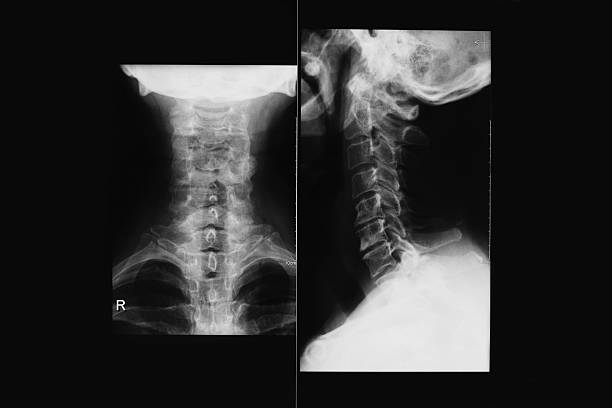Living with spinal stenosis can be a challenging journey, deeply affecting every part of life. The persistent pain, limited mobility, and accompanying emotional stress often lead to a sense of isolation and hopelessness. Obtaining disability benefits is a vital step in regaining control and improving quality of life.
At Grundy Disability Group, we understand the complexities of this medical condition and are dedicated to helping you through the process to obtain the benefits you deserve. We’ve broken down the facts of this condition as well as how someone with it can achieve disability benefits.
Defining The Condition: Spinal Stenosis
Spinal stenosis, a medical condition characterized by the narrowing of the spinal canal, exerts pressure on the spinal cord and nerves. While some may not experience any symptoms, others may suffer from pain, tingling, numbness, muscle weakness, and decreased sensation. Over time, these symptoms can intensify, causing significant discomfort and impeding daily activities.
Common Symptoms
Individuals with spinal stenosis may experience symptoms based on the location of the stenosis, including:
- Pain in the Back or Neck: Ranging from sharp to dull, this is a common symptom.
- Numbness or Tingling: Often felt in the arms, hands, legs, or feet due to sensory nerve deficits.
- Muscle Weakness: This can affect your ability to perform daily tasks.
- Walking or Balance Issues: Notably significant in cases of lumbar spinal stenosis.
- Bladder or Bowel Dysfunction: Severe cases might lead to incontinence, indicating the need for immediate medical attention.
Common Treatments
Treatments for spinal stenosis depend on the severity and location and include:
- Medications: To manage pain and inflammation.
- Physical Therapy: Aimed at improving strength, flexibility, and balance.
- Steroid Injections: These can temporarily reduce inflammation and alleviate pain.
- Surgery: In severe cases, surgery may be necessary to relieve pressure on the spinal cord or nerves.
Is Spinal Stenosis Hereditary?
While the primary causes include aging and wear and tear, genetics can play a role. A family history of spinal stenosis can slightly increase your risk.
Spinal Stenosis As A Qualifying Disability
When spinal stenosis substantially hinders one’s ability to work and engage in everyday activities, it is considered a disability under Social Security guidelines. The key to qualifying for disability benefits lies in the severity of the symptoms and the extent to which they impact functional capabilities. The Social Security Administration (SSA) evaluates spinal stenosis under its Blue Book listing, specifically in Section 1.04, which addresses Disorders of the Spine.
According to the SSA’s Blue Book, for spinal stenosis to be recognized as a disabling condition, specific criteria must be met. These include evidence of nerve root compression characterized by neuro-anatomic distribution of pain, limitation of motion of the spine, motor loss (atrophy with associated muscle weakness or muscle weakness) accompanied by sensory or reflex loss, and, if there is involvement of the lower back, positive straight-leg raising test (sitting and supine).

Medical Evidence Needed
To qualify, specific medical evidence is crucial. For spinal stenosis, this includes:
- Medical Imaging Reports: MRI, CT scans, or X-rays are essential to show the extent of the spinal stenosis in the spinal canal.
- Physician Notes: Detailed documentation of your diagnosis, symptoms, treatments, and their impacts.
- Residual Functional Capacity (RFC): An assessment that evaluates how your physical abilities, including any muscle weakness or standing for long periods, are impacted in relation to work tasks.
- Personal Accounts: Descriptions of how the condition, such as trophic ulceration or bladder/bowel incontinence, impacts your daily life.
Qualifying With Lumbar Spinal Stenosis
Lumbar spinal stenosis, a subtype affecting the lower back, is particularly disabling. The lumbar region bears significant weight and is crucial for movement, making stenosis in this area especially debilitating. Symptoms like severe lower back pain, leg numbness, and difficulty walking compromise the ability to perform physical work and even sedentary tasks, due to the need for frequent position changes.
Impact on Work and Daily Life
For many, lumbar spinal stenosis means they can no longer fulfill their job roles, especially in physically demanding careers. But it’s not limited to physical labor; prolonged sitting or standing can be equally challenging, affecting a broad range of occupations. The fluctuating nature of symptoms often hinders or stops a person from being able to work.
Advanced Treatments and Limitations
While advanced treatments exist, they may not offer complete relief and come with their own set of challenges. Surgical interventions, for instance, carry risks and require significant recovery time. Ongoing pain management often involves medications that can impact cognitive functions, further hindering work capabilities.
Securing Disability Benefits: The Process
Navigating the disability benefits process involves several critical steps:
- Initial Application: Comprehensive gathering of all relevant medical evidence and personal accounts.
- Detailed Function Report: Outlining how spinal stenosis affects daily tasks and work-related activities.
- Consistent Medical Care: Regular visits to healthcare providers to document the progression of the condition.
- Legal Representation: Receive guidance through application nuances and, if necessary, the appeals process.
The Role of A Disability Attorney
You can apply for benefits without an attorney, however, doing so will put you at a greater disadvantage.
- Ensure Comprehensive Documentation:
- Overseeing the compilation of all necessary medical information, testimonials from work and caregivers, and other personal evidence.
- Navigate Complex SSA Guidelines:
- Interpreting and adhering to SSA standards and requirements is a task that requires thorough understanding and precision. This is where a skilled attorney becomes invaluable. They can guide you through the intricate requirements of the Social Security Administration (SSA) and help present your case in the most effective way.
- Lessen The Stress Of A Claimant:
- Your daily life is stressful enough as you have to navigate it with your disability. Enduring the tedious and grueling application process for SSDI or SSI on top of these existing stressors, can possibly lead to errors in your claim and a denial.
- A disability attorney will utilize all of their knowledge and resources to ensure your application or appeal is airtight and ready to be approved. Furthermore, a disability attorney will correspond with the SSA to check on the status of your application or appeal, while you try to relax.
- Less Time Spent Fighting:
- Whether you’re in the application stage or the appeal stage, an attorney can help prevent even further delays due to missing paperwork and holes poked in your claim by the SSA.
Continuing the Fight for Benefits
Many times, the journey to secure disability benefits does not end with the initial application. If your application is denied, an attorney skilled in disability law becomes your strongest ally. They can help you:
- Understand the Reasons for Denial: An attorney can decipher the often complex language of denial letters to pinpoint the areas needing further evidence or clarification.
- Gather Additional Evidence: They can assist in obtaining further medical documentation or legal opinions that strengthen your case.
- Prepare for Disability Hearings: Your attorney can prepare you for what to expect during the hearing, help you practice your testimony, and represent you during the proceedings.
The Appeals Process
The appeals process for disability benefits can be multi-staged, including:
- Reconsideration: A complete review of your claim by a different examiner at the SSA.
- Administrative Law Judge Hearing: If reconsideration is unsuccessful, the case can be presented before a judge.
- Appeals Council Review: Should the judge’s decision be unfavorable, the next step is a review by the SSA’s Appeals Council.
- Federal Court Review: The final step is to take your case to federal court, if necessary.
- Each stage requires a different approach and strategic preparation, areas where legal help is critical.
Lumbar Spinal Stenosis and Inability to Work
Lumbar spinal stenosis can particularly affect an individual’s capacity to work. This condition can make it challenging to maintain a consistent work schedule, meet the physical demands of a job, or stay seated for extended periods. The unpredictability of symptoms like pain and numbness means that an individual’s ability to work can vary significantly from day to day.
Coping with the Condition
Living with lumbar spinal stenosis involves adapting to a new lifestyle and coping mechanisms. Patients often need to make adjustments in their homes, seek out physical therapy, and utilize assistive devices for mobility. All these factors contribute to the overall impact of the condition on an individual’s life, further justifying the need for disability benefits.
Take A Comprehensive Approach to Your Case
At Grundy Disability Group, we adopt a comprehensive approach to each case of spinal stenosis. We understand that every individual’s experience with this condition is unique. Our team dedicates time to understanding the full scope of how spinal stenosis affects your life, ensuring that every aspect of your condition is documented and presented effectively to the SSA.
Our goal is to help you navigate this challenging path and secure the disability benefits you need to manage your condition. We stand with you at every step, from the initial application to potential appeals, advocating for your rights and the support you deserve.
Schedule Your Case Consultation for Spinal Stenosis & Disability Benefits
Understanding spinal stenosis and successfully navigating the disability benefits system can be a complex and overwhelming process. If you’re facing a physically disabling condition like Spinal Stenosis, contact us today to schedule your case consultation. Take the first step towards a more secure future with your condition.


